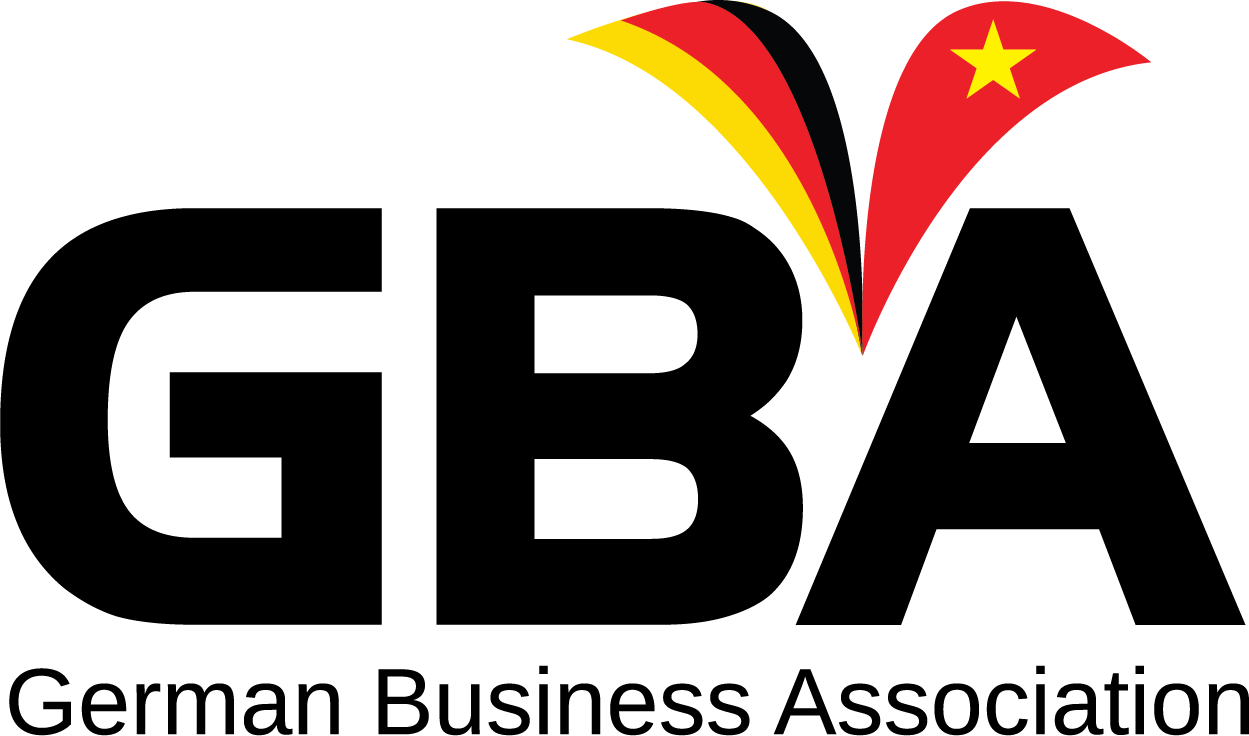HCMC, June 2025 – In a recent media interview with Doanh nhan Saigon Online, GBA Chairman, Mr. Alexander Ziehe, shared in-depth perspectives on the evolving investment landscape amid escalating global trade tensions. Amid global geopolitical turbulence and increasingly stringent tax policies from the US, especially under President Donald Trump, German businesses are gradually shifting their supply chains away from China. With its strategic location, reasonable costs, and stable political environment, Vietnam is expected to become a new “fulcrum” in its “de-risking” strategies.
Explore the full interview (in Vietnamese) here>>> and below is the English script.
Q: Mr. Ziehe, how are the new US tax policies, particularly those targeting China and Vietnam, affecting German businesses?
The Trump administration imposed tariffs of up to 100% on a range of imports from China, at times even reaching 145%. For Vietnam, the proposed tariff was 46%, temporarily adjusted down to 10% and may settle at around 20%. This instability and unpredictability create major challenges for German companies in their long-term planning. Particularly, those with factories or supply chains closely tied to China must now completely restructure their operational strategies. They need not only cost-effective alternatives but also a stable, transparent environment with long-term growth potential. Vietnam has emerged as a strategic alternative to China, especially as ASEAN plays an increasingly vital role in global supply chains.
Q: Why is Vietnam so highly regarded by German businesses?
-
Vietnam has a favorable geographical location, competitive labor costs, political stability, and is a member of several major free trade agreements such as the EVFTA and CPTPP. These factors make Vietnam not only an ideal production base but also a gateway to large markets. This is evident in the growing presence of German brands. German companies have invested in setting up manufacturing plants in Vietnam to serve both export and domestic markets. They are gradually reducing their dependence on the US market, shifting toward ASEAN, Australia, Canada, and other rapidly developing regions.
Q: However, there are still quite a few barriers in Vietnam’s investment environment. Could you elaborate?
-
One of the biggest obstacles now is the lack of synchronized infrastructure, especially the logistics systems and seaports at key industrial zones. Ho Chi Minh City, though considered the country’s most dynamic economic hub, still faces many traffic bottlenecks and challenges in industrial zone licensing and planning. Moreover, there is inconsistency in policy implementation between central and local authorities. This makes it difficult for many companies to predict the future of their investments. The Vietnamese Government has carried out reforms such as cutting licensing conditions and streamlining administrative procedures, but the pace needs to be faster and stronger.
Q: The wood industry—one of Vietnam’s major export sectors—is currently facing difficulties due to anti-dumping investigations. Do you have any recommendations?
-
Companies in the wood industry must pay particular attention to supply chain transparency. It is essential to prove the legal origin of wood, maintain clear traceability records, and ensure that production processes comply with international standards. Businesses should not wait until they are investigated to react but should proactively prepare documentation, conduct internal audits, and cooperate closely with domestic and international authorities. Additionally, I believe Vietnam should strengthen its legal support systems, provide technical consulting, and offer training in trade defense for companies in the wood industry and other major export sectors.
Q: Many opinions suggest that Vietnamese businesses need to invest heavily in technology and digital transformation. What is your view?
-
I completely agree. Adopting new technology not only improves product quality but also helps manage supply chains and traceability more effectively—something major export markets now require. I clearly see that German businesses succeed thanks to technology, from automation in production to smart operations management. Digital transformation helps reduce costs, boost productivity, and increase flexibility and resilience to global fluctuations.
Vietnamese businesses need support to access capital, train their workforce, and adopt new technologies. If appropriate policies are in place, German businesses are ready to transfer technology to their Vietnamese partners.
Q: In your opinion, which sectors should Vietnam prioritize to attract investment from Germany and Europe?
-
Vietnam should focus on three key sectors: processing and manufacturing industries, renewable energy, and high technology. Additionally, sectors such as pharmaceuticals, healthcare, education and training, and logistics hold great potential. Germany and the EU have strengths in technology, management, and quality standards. Vietnam has advantages in its young workforce, reasonable costs, and favorable geographical location. This combination will create sustainable value chains—not only for exports but also to enhance Vietnam’s domestic capabilities.
Q: Given the current uncertainties, what do German businesses need most from the Vietnamese Government?
-
What German businesses want most is stability and predictability. We highly appreciate Vietnam’s proactive negotiations and protection of interests in trade disputes. Vietnam should continue to be a proactive voice in ASEAN regarding free trade. Additionally, there should be an open and effective dialogue mechanism among businesses, the government, and intermediary organizations like EuroCham or the German Chamber of Commerce. This will be a fast feedback channel to help resolve obstacles and strengthen investor confidence.

